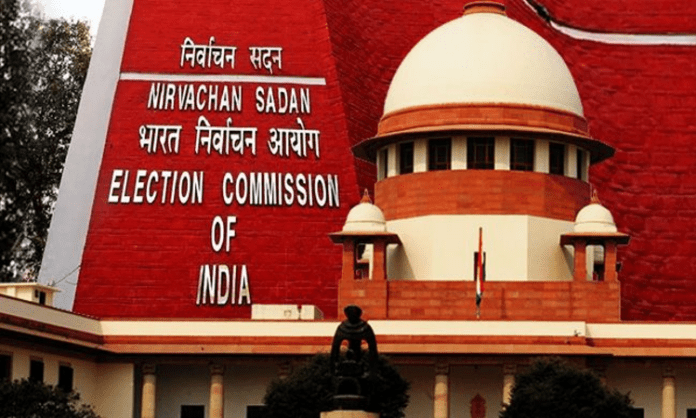New Delhi [India] – The Supreme Court on Monday directed the petitioner seeking to apply the Sexual Harassment of Women at Workplace (Prevention, Prohibition, and Redressal) Act, 2013 (PoSH Act), to political parties, to first approach the Election Commission of India (ECI) with their grievance.
A bench comprising Justices Surya Kant and Manmohan stated that the ECI, as the authority responsible for registering and regulating political parties, is well-positioned to address the concerns raised.
Senior advocate Shobha Gupta, representing petitioner Yogamaya MG, agreed to move the ECI in accordance with the bench’s suggestion. The court clarified that if the grievance is not adequately resolved, the petitioner would have the liberty to seek legal recourse.
“The petition is disposed of with liberty to the petitioner to approach the competent authority. If the grievance remains unresolved, the petitioner may approach a judicial forum in accordance with the law,” the bench noted in its order.
Petition Highlights
The Public Interest Litigation (PIL) filed by Yogamaya MG named several political parties, including the Indian National Congress, Bharatiya Janata Party, Communist Party of India (Marxist), and others, as respondents.
The plea raised concerns over:
- Non-compliance with the PoSH Act:
- Political parties allegedly lack Internal Complaints Committees (ICCs) to address sexual harassment complaints, in violation of Section 4 of the PoSH Act.
- Scope of “Employees” Under PoSH Act:
- The petition sought recognition of individuals engaged in political party activities as “employees” under Section 2(f) of the Act.
- Role of the ECI:
- It urged the ECI to enforce compliance with the PoSH Act as a prerequisite for registering and recognizing political parties under the Representation of the People Act, 1951.
Next Steps
The petitioner will now present the issue to the ECI for deliberation. If the grievance persists, further judicial intervention may be sought.
This case underscores the need for political parties to align with workplace safety norms and ensure a harassment-free environment within their organizations.


